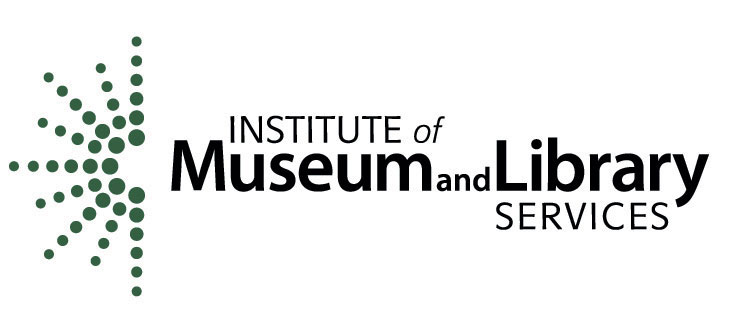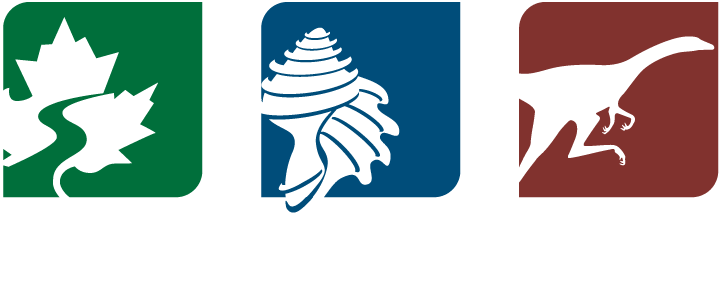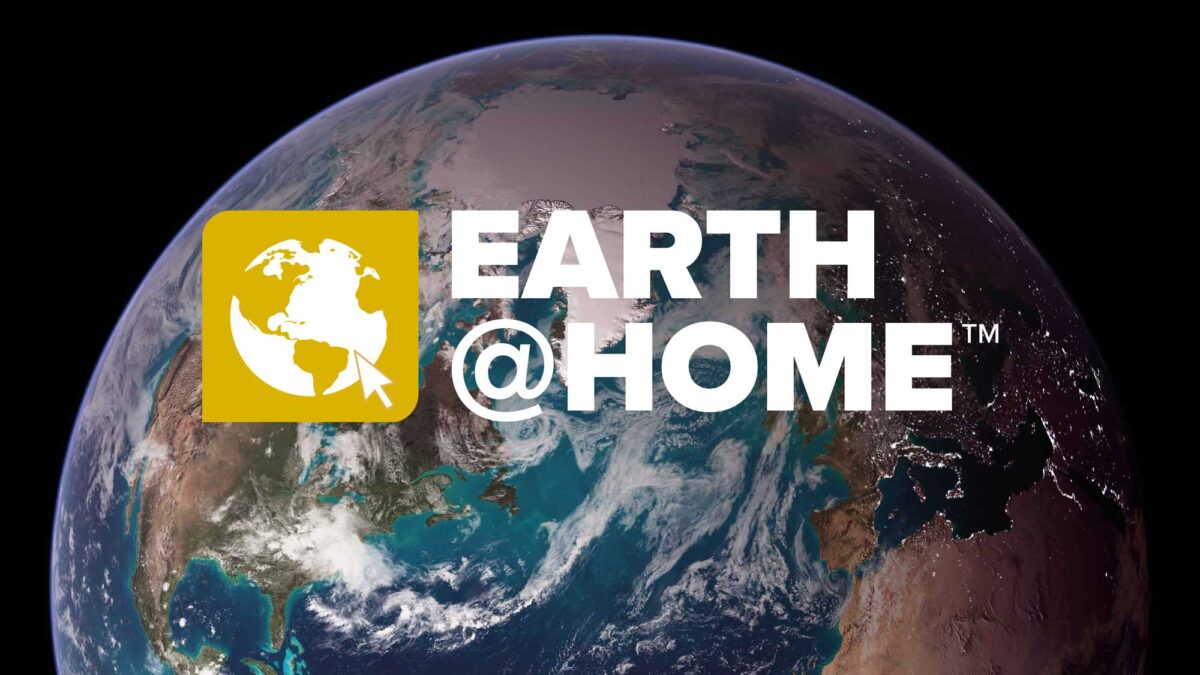Overview
The Paleontological Research Institution (PRI) has a long history of serving diverse audiences, from scientists to school children. As part of an ongoing effort to continue to grow its national reach and expand its educational outreach offerings, PRI has developed Earth@Home, your free online toolkit for learning about Earth and its 4.5-billion-year history.
Earth@Home is rich with free interactive content about Earth and its life, with a focus on geology, paleontology, climate, and the connections of Earth’s different systems. The major components of this new platform include:
Here on Earth
When people think about geology, they usually envision the Grand Canyon or a majestic mountain range, but many don’t consider the interesting geology right under their feet and what it reveals about the Earth’s history. The "Here on Earth" regional guides to Earth science will encourage website visitors to learn about their local geology and natural environment right outside their backdoor. Our initial focus is on the Earth science of the Northeastern United States, but we plan to eventually provide coverage for the entire country.
Digital Encyclopedia of Earth Science
A free, online, open-access textbook, designed to provide accessible introductions to core topics across the Earth sciences. Chapters online now include: Big Ideas in Earth Systems Science, Minerals, What is Climate, and Evidence for and Causes of Recent Climate Change. Chapters under development currently include Rocks and Plate Tectonics. The Digital Encyclopedia of Earth Science also connects with the existing Digital Encyclopedia of Ancient Life textbook, which is focused on paleontology (the study of fossils) and is a component of PRI's Digital Atlas project.
Virtual Fieldwork
Fieldwork, the study of a site through firsthand observation, is fundamental to how we have come to understand our environment and Earth processes. The driving question of field work is, “Why does this place look the way it does?” While computer-based simulations of field sites have not managed to replicate the multi-sensory immersive experience of being in the field, Virtual Fieldwork Experiences (VFEs) can offer opportunities to explore sites that are not practical to travel to in person.
These three main components of Earth@Home are all under active development. Most of the underlying content is derived, integrated, and updated from over 20-years worth of PRI publications, especially including our Teacher-Friendly Guides to Earth Science and Climate Change.
While Earth@Home is a “work in progress,” it is intended to become impactful for students and educators right now. Many have been forced to quickly adapt to the changes the COVID-19 pandemic has presented in education and have become increasingly reliant on quality online resources. The resources of Earth@Home will help high school-and college-level students and educators meet the challenges associated with these sudden changes.
Finding innovative ways to support the education community has been an important priority for PRI for over two decades, but has become the focus of considerable effort since the pandemic began in March 2020.
Workshops
During 2022 we will be hosting a series of free, online (Zoom) workshops for educators about Earth@Home resources. Find out more about these workshops here.
Support
We are very excited to share that Paleontological Research Institution received a one-year grant (start date Nov. 1, 2021) from the Institute of Museum and Library Services (IMLS) as part of the FY2022 American Rescue Plan Grants Program to support the development of the "Here on Earth" part of Earth@Home (ARPML-250637-OMLS-22). (The views, findings, conclusions or recommendations expressed in this website do not necessarily represent those of the Institute of Museum and Library Services.)

Additional support will be necessary to create the full Earth@Home website that we envision. Please consider supporting the Earth@Home project with a donation to the Paleontological Research Institution, which is a registered 501(c)(3) non-profit institution. Your donation will help support the development of additional quality content for this website.
Contact
The Earth@Home project is being led by Dr. Jonathan Hendricks, PRI's Director of Science Communication. Please feel free to contact him via email if you have any questions or comments about Earth@Home.
About the Paleontological Research Institution
The Paleontological Research Institution (PRI) pursues and integrates education and research, and interprets the history and systems of the Earth and its life, to increase knowledge, educate society, and encourage wise stewardship of the Earth. PRI and its two public venues for education, the Museum of the Earth and the Cayuga Nature Center, are separate from, but formally affiliated with Cornell University, and interact closely with numerous University departments in research, teaching, and public outreach.
Image above: "Twin Blue Marbles" image by Reto Stöckli, based on data from NASA and NOAA (Visible Earth; public domain).



